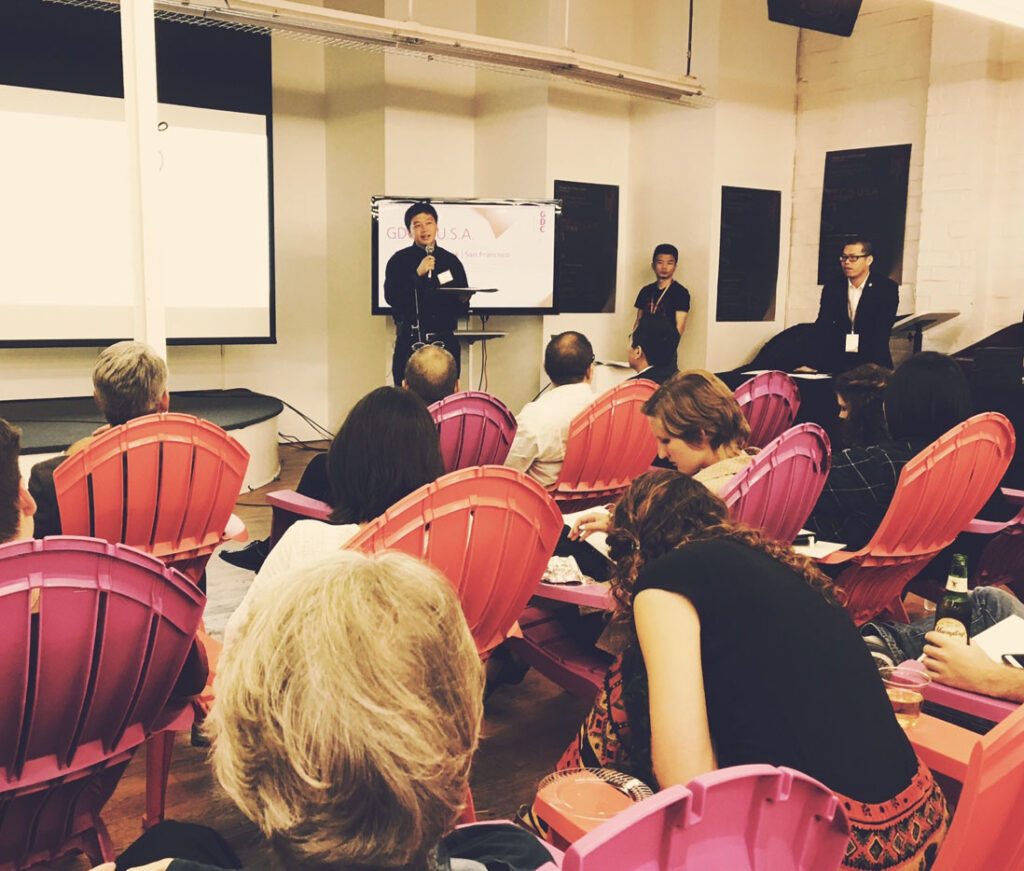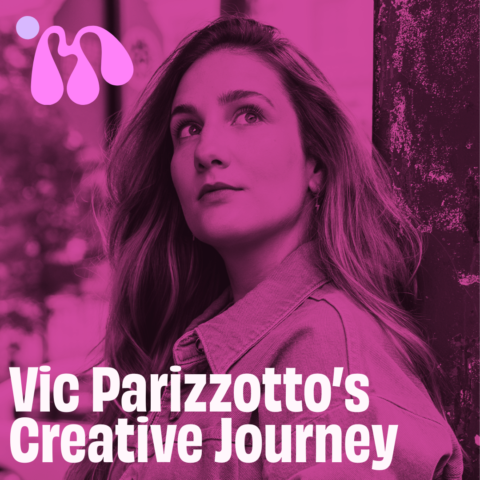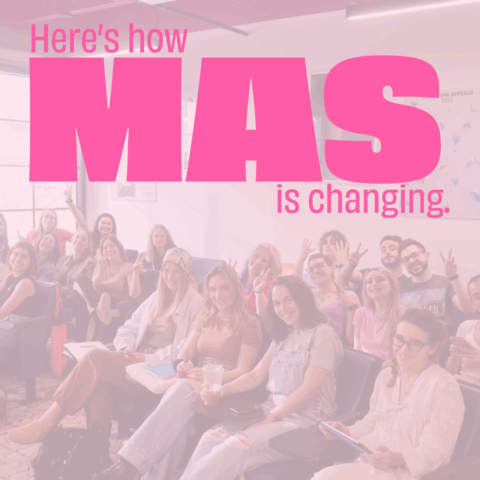
Becoming a Leader in Planning and Strategy: An Interview with Steve Bayley
Strategy. Planning. Strategic Planning. Whatever your term of choice for the growing discipline, there can be no doubt: it's a rapidly growing field. According to GlassDoor, strategy and planning is the most sought-after discipline in advertising today.
No wonder, then, that so many ambitious creatives are seeking to grow their skills and take on leadership positions in strategy. And that's exactly why we launched The Strategy Director Program at M.AD. It's an opportunity for growing strategy leaders to up their game with the mentorship of industry heavy-hitters like Andrés Ordóñez (CCO at FCB Chicago) and Douglas Atkin (Global Head of Community at Airbnb).
So what can students expect from their experience in the program? We chatted with current student Steven Bayley to find out. He spoke about his experience in the program, his perspective as a pro in the industry, and his own growth as a strategic leader.
Today, Steven is Strategy Director at Matlock ADPR—already an established leader in his own right. He joined the Strategy Director program after attending the Strategic Planning Boot Camp a few years back. He's the kind of person who strives not just succeed, but to excel. His growth as a planner is stratospheric.
Here's what Steven had to say.
What brought you here to M.AD? What are you hoping to achieve with this program?
I am back here at M.AD because, for the last several years, I have had my head down. I've focused on my work. And I realized I'd been operating within a few narrow bands in the strategy world. I wanted to take a step back and get a more holistic view of the advertising landscape. I've experienced enough to know that there are parts of the job that I'm better at than others. And although I generally subscribe to the philosophy that it's better to focus on your strengths than weaknesses, I wanted to find out about additional aspects of the job that have emerged over the last several years. Just to make sure I acquire the skills I need.
I also wanted to learn more about the management aspects of being a Director. It seems every agency has its own interpretation of what a Director does—everything from being a solo senior practitioner to leading very large teams. Ultimately, I want to lead so that I can open doors for others in this industry. What better way than to learn from experienced industry leaders directly?
What makes you the kind of strategist (or planner) you are?
I think that has changed for me over the last few years. I used to be the kind that thought I had all the answers. I thought I had a unique perspective because I have always made a conscious effort to put myself in uncomfortable situations in order to stretch the limits of my understanding of people and culture. I had to take a step back and really look at myself and see if I was trading on biases and assumptions that were either flat-out untrue or quite frankly out of date.
I'm always looking for the underlying drivers of why people say and do what they do. That part will never change. Certainly, my industry experience of growing as a strategist primarily within the walls of Black-owned agencies has challenged a lot of my assumptions about race, racism, culture, and biases and I bring those learnings into my work, as best as I can from my perspective as a White man to make sure the work will resonate with the widest swath of consumers.
What makes a great strategist/planner? Are there skills or mindsets that stand out?
In short, Openness and Empathy. You've got to be able to see people the way they want to be seen in order to understand what they want to communicate. Later in the planning process, you can certainly bring in your personal experience and perspective. But you have to remember: you are not the target. It's not about you. It's much easier to say than to do. Especially for me. I'm not going to lie: I have a bit of an ego. Going to neutral and just having an openness to new information is the single most critical element of the job.
There is a famous Tupac quote where he said:
"I can't explain why I shine and no one else shines. I think everybody shines in different things, and a lot of things I can't do, I can't play basketball, like every other Black person in America, but I can act. I know how to go to that true spot in myself because I'm there every day. I can be me, I can be whoever because I'm true to me. I can go to neutral easily. A lot of people; Black, White, Mexican, young, old, fat, or skinny have a problem being true to themselves. They got problems looking directly into the mirror and looking into their own soul. The reason I sell 6 million records, the reason I can go to jail and come out without a scratch, the reason I can walk around, the reason I am who I am today is because I can look directly into my face and find my soul there."
I think about this quote all the time. Actively working on cultivating this mindset has changed me as a person and is changing my work for the better.
Since we just mentioned the whole "Strategist" vs "Planner" vs "Strategic Planner" debate a couple times...does it mean anything to you? Any thoughts on the importance of the title?
I was first introduced to the discipline back in the Account Planner days, and I wore the title with a badge of honor. I thought Account Planners were primarily responsible for bringing the voice of the consumer into the advertising development process, and were a little more specifically expected to be involved with research, either conducting primary qualitative research or having the ability to design surveys or perform regression analysis and other foundational quant tasks. That was my perception coming into the industry in 2012-13. Strategists at the time to me were more digital strategists—were more digital behavior-focused or specific platform experts.
My perspective has evolved on that. I think Strategy is much broader than that narrow interpretation and encompasses all flavors of strategic thinkers and doers. Planner and Account Planner are kind of a heritage term at this point and although I had to be dragged kicking and screaming I'm firmly in the Strategist camp now because it's not about what I want, it's about how the world is, and the world has moved to strategist. It's worth noting that Strategist also opens up additional possibilities to agency strategists because it's also used on the client side, in consultancies, and news and government organizations. Strategy has greater commercial appeal and could open more doors for agency strategists beyond the confines of agency life.
What's your favorite part of day-to-day work in the strategy world? When are you most in the zone?
I have always been passionately in love with the deep dive, with finding new information and applying that information to solve problems. I am most in the zone when I can have several hours of uninterrupted deep work to really understand a new topic. I love new beginnings. I love the promise of a fresh start and the unknown.
I am also most in the zone later in the day and in the evenings. There's something magical about the quiet of the night and plugging away at something when the rest of the world is still.
What have you gleaned from the Strategy Director program so far? Any big standout lessons? Anything you'll be bringing back to your work?
We have had three sessions so far. One really specific thing from a research perspective that stood out is Don Fox (CEO, Firehouse Subs) mentioned that when he's looking at consumer sentiment surveys, he's only looking for the top box on a 5-point scale. He said those are the people who are actually willing to spend more. It makes sense, it's basically just the Pareto Principle (the 80/20 rule) in effect. But so often, as strategists, we have the bad habit of manipulating numbers to try and put a positive spin on things in order to support the strategic narrative we're selling. That leads strategists to want to rest their strategies on big overwhelming numbers, quoting any positive or even neutral responses as positive in their decks. I've been seeing pushback (and rightfully so) on Twitter from quantitative researchers about this tendency and it's something I've taken to heart.
How have you connected with your fellow students in the program?
I have connected online with my fellow students on LinkedIn and in the breakout sessions in class. I'm sure as the class proceeds we will have more opportunities to get to know each other and connect in a deeper way.
And finally: as you go forward in strategy as your career, do you have a dream job or role you'd like to work and play in? Or have you already found the world you belong in?
I'll just put it out there: I would love to work my way up to a Global CSO role and join a multinational holding company agency. I'd love to work overseas. I want that experience for myself and for my family to see things beyond an American perspective. I'd like to work in the UK at some point as well as Vietnam, and if there's time before I need to come home and take care of my aging parents, a few years in Africa. Ultimately, I want my last role before retirement to be in Boston to bring my kids closer to their extended family.
What kind of Strategy Director will you be?
Our 10-week online program will help you become the Strategy Director you're meant to be.




